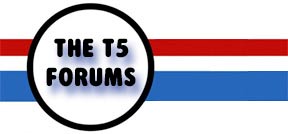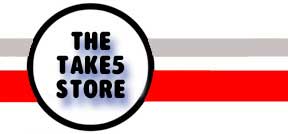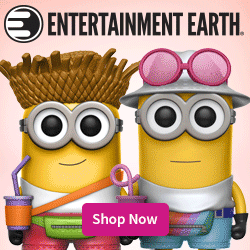http://www.foxnews.com/scitech…..s-is-dead/
CUPERTINO, Calif. – Steve Jobs, the Apple founder and former CEO who invented and masterfully marketed ever-sleeker gadgets that transformed everyday technology, from the personal computer to the iPod and iPhone, has died. He was 56.
Apple announced his death without giving a specific cause.
"We are deeply saddened to announce that Steve Jobs passed away today," the company said in a brief statement.
"Steve's brilliance, passion and energy were the source of countless innovations that enrich and improve all of our lives. The world is immeasurably better because of Steve"
Apple's former CEO Steve Jobs died on October 5, 2011, after a long battle with cancer and other health issues.
Jobs had battled cancer in 2004 and underwent a liver transplant in 2009 after taking a leave of absence for unspecified health problems. He took another leave of absence in January — his third since his health problems began — before resigning as CEO six weeks ago. Jobs became Apple's chairman and handed the CEO job over to his hand-picked successor, Tim Cook.
The news Apple fans and shareholders had been dreading came the day after Apple unveiled its latest version of the iPhone, just one in a procession of devices that shaped technology and society while Jobs was running the company.
Jobs started Apple with a high school friend in a Silicon Valley garage in 1976, was forced out a decade later and returned in 1997 to rescue the company. During his second stint, it grew into the most valuable technology company in the world with a market value of $351 billion. Only Exxon Mobil, which makes it money extracting and refining oil instead of ideas, is worth more.
Cultivating Apple's countercultural sensibility and a minimalist design ethic, Jobs rolled out one sensational product after another, even in the face of the late-2000s recession and his own failing health.
He helped change computers from a geeky hobbyist's obsession to a necessity of modern life at work and home, and in the process he upended not just personal technology but the cellphone and music industries. For transformation of American industry, he ranks among his computer-age contemporary, Microsoft Corp. co-founder Bill Gates and other creative geniuses such as Walt Disney that left an indelible imprint on the world. Jobs died as Walt Disney Co.'s largest shareholder, a by-product of his decision to sell computer animation studio Pixar in 2006.
Perhaps most influentially, Jobs in 2001 launched the iPod, which offered "1,000 songs in your pocket." Over the next 10 years, its white earphones and thumb-dial control seemed to become more ubiquitous than the wristwatch.
In 2007 came the touch-screen iPhone, joined a year later by Apple's App Store, where developers could sell iPhone "apps" which made the phone a device not just for making calls but also for managing money, editing photos, playing games and social networking. And in 2010, Jobs introduced the iPad, a tablet-sized, all-touch computer that took off even though market analysts said no one really needed one.
Steven Paul Jobs was born Feb. 24, 1955, to Joanne Simpson, then an unmarried graduate student, and Abdulfattah Jandali, a student from Syria. Simpson gave Jobs up for adoption, though she married Jandali and a few years later had a second child with him, Mona Simpson, who became a novelist.
Steven was adopted by Clara and Paul Jobs of Los Altos, Calif., a working-class couple who nurtured his early interest in electronics. He saw his first computer terminal at NASA's Ames Research Center when he was around 11 and landed a summer job at Hewlett-Packard before he had finished high school.
Jobs enrolled in Reed College in Portland, Ore., in 1972 but dropped out after a semester.
"All of my working-class parents' savings were being spent on my college tuition. After six months, I couldn't see the value in it," he said at a Stanford University commencement address in 2005. "I had no idea what I wanted to do with my life and no idea how college was going to help me figure it out."
When he returned to California in 1974, Jobs worked for video game maker Atari and attended meetings of the Homebrew Computer Club with Steve Wozniak, a high school friend who was a few years older.
Wozniak's homemade computer drew attention from other enthusiasts, but Jobs saw its potential far beyond the geeky hobbyists of the time. The pair started Apple in Jobs' parents' garage in 1976. Their first creation was the Apple I — essentially, the guts of a computer without a case, keyboard or monitor.
The Apple II, which hit the market in 1977, was their first machine for the masses. It became so popular that Jobs was worth $100 million by age 25. Time magazine put him on its cover for the first time in 1982.
During a 1979 visit to the Xerox Palo Alto Research Center, Jobs again spotted mass potential in a niche invention: a computer that allowed people to access files and control programs with the click of a mouse, not typed commands. He returned to Apple and ordered the team to copy what he had seen.
It foreshadowed a propensity to take other people's concepts, improve on them and spin them into wildly successful products. Under Jobs, Apple didn't invent computers, digital music players or smartphones — it reinvented them for people who didn't want to learn computer programming or negotiate the technical hassles of keeping their gadgets working.
"We have always been shameless about stealing great ideas," Jobs said in an interview for the 1996 PBS series "Triumph of the Nerds."
The engineers responded with two computers. The pricier one, called Lisa, launched to a cool reception in 1983. A less-expensive model called the Macintosh, named for an employee's favorite apple, exploded onto the scene in 1984.
The Mac was heralded by an epic Super Bowl commercial that referenced George Orwell's "1984" and captured Apple's iconoclastic style. In the ad, expressionless drones marched through dark halls to an auditorium where a Big Brother-like figure lectures on a big screen. A woman in a bright track uniform burst into the hall and launched a hammer into the screen, which exploded, stunning the drones, as a narrator announced the arrival of the Mac.
There were early stumbles at Apple. Jobs clashed with colleagues and even the CEO he had hired away from Pepsi, John Sculley. And after an initial spike, Mac sales slowed, in part because few programs had been written for the new graphical user interface .
Meanwhile, Microsoft copied the Mac approach and introduced Windows, outmaneuvering Apple by licensing its software to slews of computer makers while Apple insisted on making its own machines.
Software developers wrote programs first for Windows because it had millions more computers. A Mac version didn't come for months, if at all.
With Apple's stock price sinking, conflicts between Jobs and Sculley mounted. Sculley won over the board in 1985 and pushed Jobs out of his day-to-day role leading the Macintosh team. Jobs resigned his post as chairman of the board and left Apple within months.
"What had been the focus of my entire adult life was gone, and it was devastating," Jobs said in his Stanford speech. "I didn't see it then, but it turned out that getting fired from Apple was the best thing that could have ever happened to me. The heaviness of being successful was replaced by the lightness of being a beginner again, less sure about everything. It freed me to enter one of the most creative periods of my life."
He got into two other companies: Next, a computer maker, and Pixar, a computer-animation studio that he bought from George Lucas for $10 million.
Pixar, ultimately the more successful venture, seemed at first a bottomless money pit. Then came "Toy Story," the first computer-animated full-length feature. Jobs used its success to negotiate a sweeter deal with Disney for Pixar's next two films. In 2006, Jobs sold Pixar to The Walt Disney Co. for $7.4 billion in stock, making him Disney's largest individual shareholder and securing a seat on the board.
With Next, Jobs was said to be obsessive about the tiniest details of the cube-shaped computer, insisting on design perfection even for the machine's guts. He never managed to spark much demand for the machine, which cost a pricey $6,500 to $10,000.
Ultimately, he shifted the focus to software — a move that paid off later when Apple bought Next for its operating system technology, the basis for the software still used in Mac computers.
By 1996, when Apple bought Next, Apple was in dire financial straits. It had lost more than $800 million in a year, dragged its heels in licensing Mac software for other computers and surrendered most of its market share to PCs that ran Windows.
Larry Ellison, Jobs' close friend and fellow Silicon Valley billionaire and the leader of Oracle Corp., publicly contemplated buying Apple in early 1997 and ousting its leadership. The idea fizzled, but Jobs stepped in as interim chief later that year.
He slashed unprofitable projects, narrowed the company's focus and presided over a new marketing push to set the Mac apart from Windows, starting with a campaign encouraging computer users to "Think different."
"In the early days, he was in charge of every detail. The only way you could say it is, he was kind of a control freak," he said. In his second stint, "he clearly was much more mellow and more mature."
In the decade that followed, Jobs kept Apple profitable while pushing out an impressive roster of new products.
Apple's popularity exploded in the 2000s. The iPod, smaller and sleeker with each generation, introduced many lifelong Windows users to their first Apple gadget.
ITunes, in 20XX, gave people a convenient way to buy music legally online, song by song. For the music industry, it was a mixed blessing. The industry got a way to reach Internet-savvy people who, in the age of Napster, were growing accustomed to downloading music free. But online sales also hastened the demise of CDs and established Apple as a gatekeeper, resulting in battles between Jobs and music executives over pricing and other issues.
Jobs' command over gadget lovers and pop culture swelled to the point that, on the eve of the iPhone's launch in 2007, faithful followers slept on sidewalks outside posh Apple stores for the chance to buy one. Three years later, at the iPad's debut, the lines snaked around blocks and out through parking lots, even though people had the option to order one in advance.
The decade was not without its glitches. Apple was swept up in a Securities and Exchange Commission inquiry into stock-options backdating in the mid-2000s, a practice that artificially boosted the value of options grants. But Jobs and Apple emerged unscathed after two former executives took the fall and eventually settled with the SEC.
Jobs' personal ethos — a natural food lover who embraced Buddhism and New Age philosophy — was closely linked to the public persona he shaped for Apple. Apple itself became a statement against the commoditization of technology — a cynical view, to be sure, from a company whose computers can cost three or more times as much as those of its rivals.
For technology lovers, buying Apple products meant gaining entrance to an exclusive club. At the top was a complicated and contradictory figure who was endlessly fascinating — even to his detractors, of which Jobs had many. Jobs was a hero to techno-geeks and a villain to partners he bullied and to workers whose projects he unceremoniously killed or claimed as his own.
Unauthorized biographer Alan Deutschman described him as "deeply moody and maddeningly erratic." In his personal life, Jobs denied for two years that he was the father of Lisa, the baby born to his longtime girlfriend Chrisann Brennan in 1978.
Few seemed immune to Jobs' charisma and will. He could adeptly convince those in his presence of just about anything — even if they disagreed again when he left the room and his magic wore off.
"He always has an aura around his persona," said Bajarin, who met Jobs several times while covering the company for more than 20 years as a Creative Strategies analyst. "When you talk to him, you know you're really talking to a brilliant mind."
But Bajarin also remembers Jobs lashing out with profanity at an employee who interrupted their meeting. Jobs, the perfectionist, demanded greatness from everyone at Apple.
Jobs valued his privacy, but some details of his romantic and family life have been uncovered. In the early 1980s, Jobs dated the folk singer Joan Baez, according to Deutschman.
In 1989, Jobs spoke at Stanford's graduate business school and met his wife, Laurene Powell, who was then a student. When she became pregnant, Jobs at first refused to marry her. It was a near-repeat of what had happened more than a decade earlier with then-girlfriend Brennan, Deutschman said, but eventually Jobs relented.
Jobs started looking for his biological family in his teens, according to an interview he gave to The New York Times in 1997. He found his biological sister when he was 27. They became friends, and through her Jobs met his biological mother. Few details of their relationships have been made public.
But the extent of Apple secrecy didn't become clear until Jobs revealed in 2004 that he had been diagonosed with — and "cured" of — a rare form of operable pancreatic cancer called an islet cell neuroendocrine tumor. The company had sat on the news of his diagnosis for nine months while Jobs tried trumping the disease with a special diet, Fortune magazine reported in 2008.
In the years after his cancer was revealed, rumors about Jobs' health would spark runs on Apple stock as investors worried the company, with no clear succession plan, would fall apart without him. Apple did little to ease those concerns. It kept the state of Jobs' health a secret for as long as it could, then disclosed vague details when, in early 2009, it became clear he was again ill.
Jobs took a half-year medical leave of absence starting in January 2009, during which he had a liver transplant. Apple did not disclose the procedure at the time; two months later, The Wall Street Journal reported the fact and a doctor at the transplant hospital confirmed it.
In January 2011, Jobs announced another medical leave, his third, with no set duration. He returned to the spotlight briefly in March to personally unveil a second-generation iPad .
In 2005, following the bout with cancer, Jobs delivered Stanford University's commencement speech.
"Remembering that I'll be dead soon is the most important tool I've ever encountered to help me make the big choices in life," he said. "Because almost everything — all external expectations, all pride, all fear of embarrassment or failure — these things just fall away in the face of death, leaving only what is truly important."





